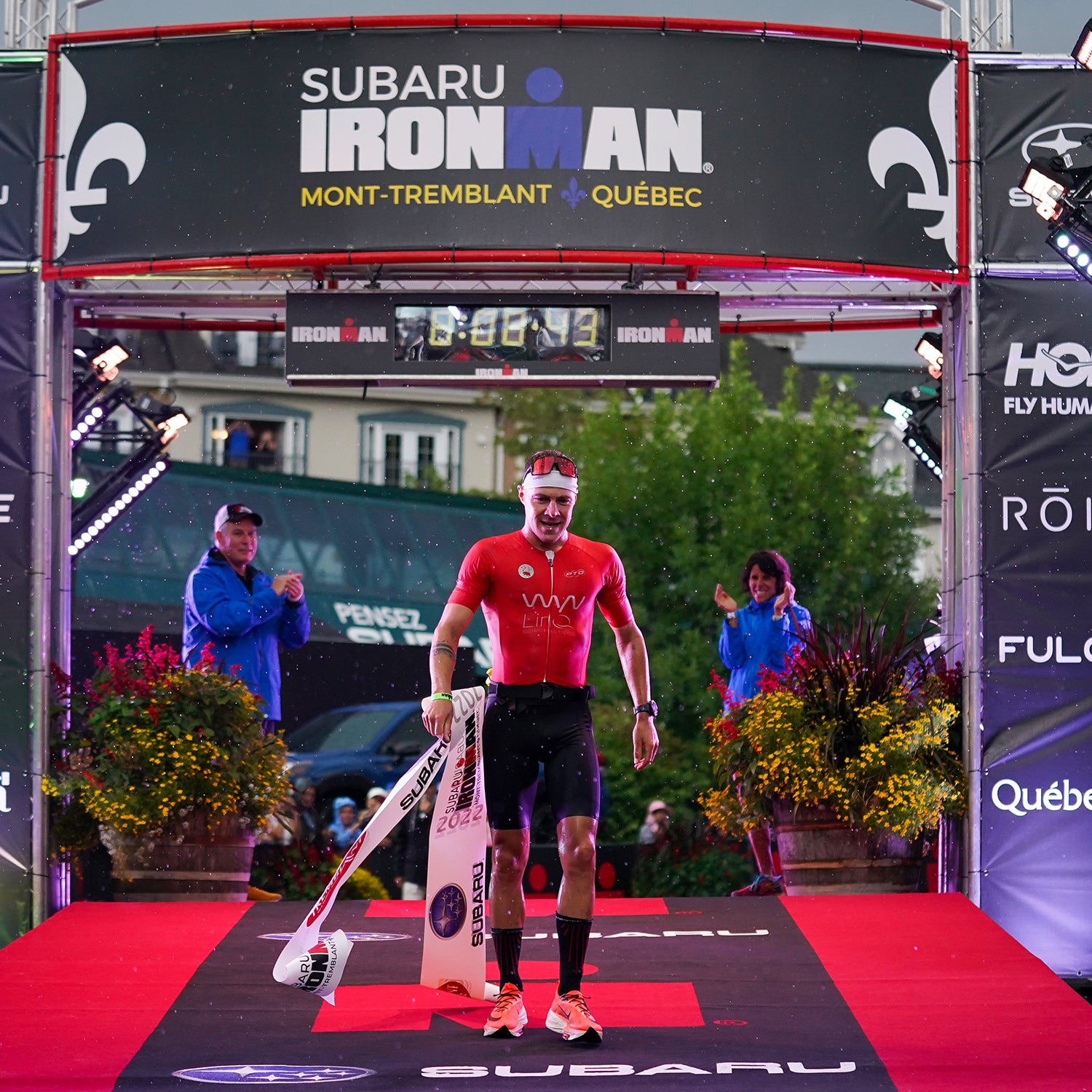that American pro triathlete Collin Chartier tested positive for EPO from an out-of-competition test performed on February 10, 2023. Upon receipt of the positive test, Chartier admitted to the use of the banned substance to the agency, and as a result received a reduced ban of three years, down from four according to the ITA.
Erythropoietin, known as EPO, is prohibited under World Anti-Doping Agency regulations because it stimulates erythropoiesis (red blood cell production) and can modify the body’s capacity to transport oxygen, increasing stamina, and performance.
In a social media post released on Monday morning, Chartier went on to further admit his use of a “PED in November after feeling like I have lost my way in the sport,” due to “intense pressure and expectations to win the biggest races in 2024.” His post went on to say that he had no plans to return to the sport after the three-year ban was lifted.
Despite having a relatively inauspicious short course career, Chartier was an up-and-coming triathlete in the long-course scene.
Coached by Mikal Iden, the brother of reigning Ironman world champion Gustav, he was a shock winner of last year’s inaugural PTO U.S. Open in Dallas in September where he won $100,000 topping a highly competitive field including Magnus Ditlev and Sam Long.
Related:
Training alongside two-time Ironman world championship runner-up Lionel Sanders, the victory came three weeks after his first full-distance Ironman victory in Mont-Tremblant. Chartier then had a disappointing debut in Hawaii in the Ironman World Championship in October when he finished 35th.
Prior to those results, Chartier’s highest competitive finish was a win at Challenge Salou in October 2021 and a third-place finish at 70.3 Boulder in August of the same year.
Fellow pros posting in response to Chartier’s Instagram message gave mixed comments, with 2014 Ironman world champion Sebastian Kienle saying: “Let me guess, you bought it on the internet and also learned how to use it – all from the internet. Nobody helped you, nobody knew.”
Former triathlete-turned-elite-runner Lauren Goss commented: “Dude brave of you . No one sees the mental health side. Walk through the fire.”
Despite being PTO-ranked No 14 and an automatic qualifier, Chartier was not on the start-list for May’s big money PTO European Open in Ibiza. He had originally planned to race Saturday’s Ironman Texas and had been training at altitude in California, Ecuador, and Girona in Spain.
The International Testing Agency (ITA), the testing body who administered and discovered the adverse finding is a Switzerland-based, not-for-profit that claims no connection to “sporting or political powers” on its website. The ITA conducts testing for the Ironman organization from a pool of as of this writing—which includes Chartier.
Coincidentally, Ironman said that 2023 is the first year the brand has delegated results management and prosecution of doping cases to the ITA. “Testing plans are based on a variety of factors and differ from individual athlete to individual athlete, with review of specific performances, intelligence, and the testing plans of National Anti-Doping agencies to maximize resources,” Ironman said in a statement.
“Ironman does acknowledge the significance of the decision made by Collin in promptly accepting responsibility for his actions.”


